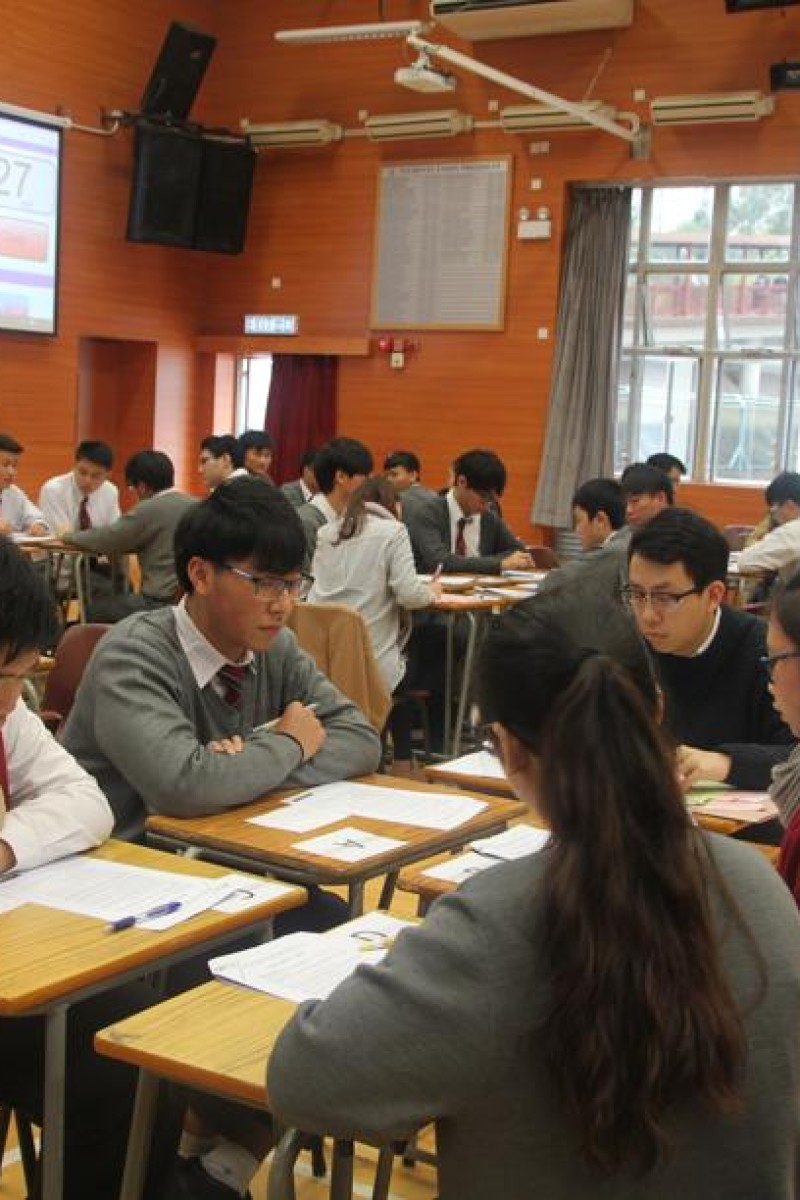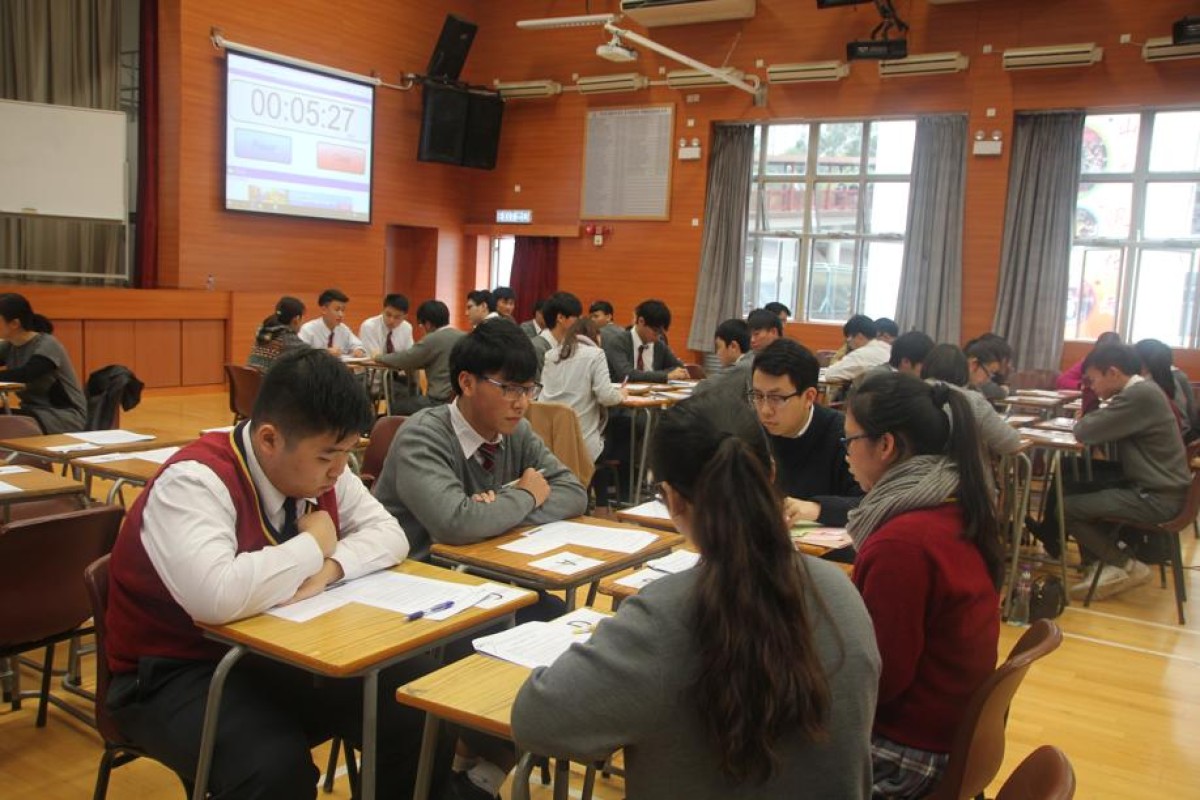
2018 DSE English Paper 4 speaking exam focused on current affairs and Hong Kong figures like Li Ka-shing and Rex Tso
Questions included realistic topics like policies on drone flying and e-sports, compared to more imaginative ones in the past
 A lot of this year’s questions revolved around current affairs and everyday life.
A lot of this year’s questions revolved around current affairs and everyday life. Students had mixed reactions on their 2018 DSE English speaking exams, while teachers said they saw an increase in current affairs topics during the group discussions.
The exam consists of two parts – Part A and Part B. In Part A, candidates were given eight minutes to discuss, in a group of four, a topic based on a given short text. Part B (Individual Response) comes straight after, and students are given one minute to respond to a question based on the group discussion.
Kenneth Lau, a tutor from Beacon College, said a lot of this year’s questions revolved around current affairs and everyday life, such as policies on drone flying and e-sports.
“They were very realistic questions, and less imaginative compared to previous years,” he said.
Lau added that students who had familiarised themselves with current events to prepare for Paper Two (Writing) should have found the exam relatively easy.
But Cheng Tim-tim, a teacher from Kiangsu-Chekiang College (Kwai Chung), said candidates who had not been exposed to “a wider range of culturally relevant texts” might have had difficulty elaborating on topics such as the gong bath (a form of sound therapy) and the Buddha-like mentality of doing nothing.
Cheng added that there had been fewer international topics this year, with questions more focused on local figures such as Li Ka-shing and Rex Tso. There was also a lot of questions on technology and the environment.
Eunice Yip, 17, said her group discussion topic had been an unexpected one. She had been asked to evaluate Baptist University’s policy of not requiring students to maintain a 70 per cent or above attendance record.
Suggested areas of discussion had included looking at the advantages and disadvantages of the policy, whether it will succeed, and whether it can be applied to secondary schools.
“I wasn’t able to recall a single college or university that uses such schemes,” said the Pooi To Middle School student. “Overall, though, there was lots to talk about.”
A teacher, surnamed Chan, said that this question had been an acceptable level of difficulty as students would have been able to relate it to their secondary school life. Keywords like “advantages and disadvantages” had also been seen a lot in past papers, he added.
Lam Chun-ngai, 17, described his topic and its level of difficulty as about average. The Ying Wa College student’s given scenario was a school receiving an invitation from Television Broadcasts Limited, encouraging students to join a talent show.
Students were asked to discuss the reasons for people to join the talent show, the advantages and disadvantages of young people joining it, and whether parents should allow their children to take part in it.
“The biggest challenge was that everyone in my group was very active, and can speak English fluently,” he said. “It made it difficult to outperform the others or to seem outstanding.”
Lau said students attempting this question could have tried to talk about the reasons for joining a talent show and its advantages at the same time.
“It’s not necessary to discuss things individually,” he said.
According to the Hong Kong Examinations and Assessment Authority, a detailed examination report will be released in November this year, which will include all the examination questions and comments on students’ performance.
The last English Speaking examination will take place next Thursday and Friday (May 24-25). They are sessions specially designed for candidates with special educational needs.
